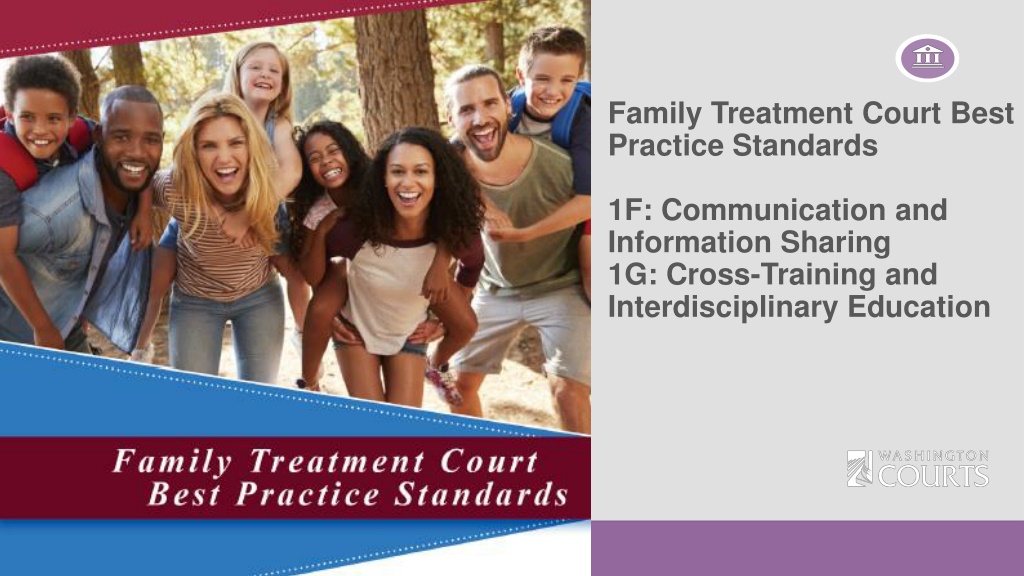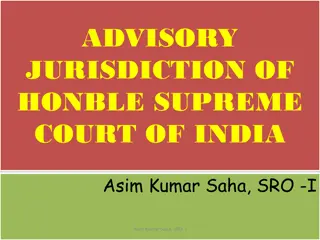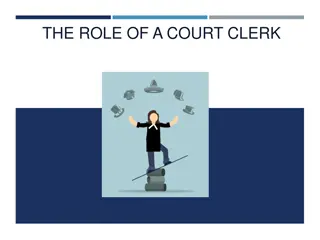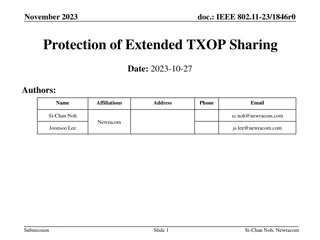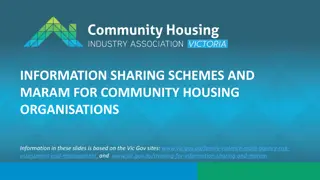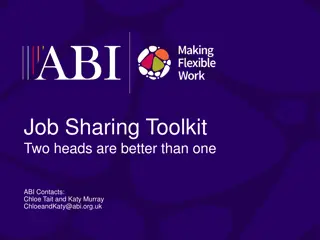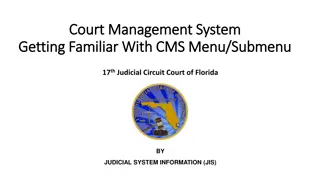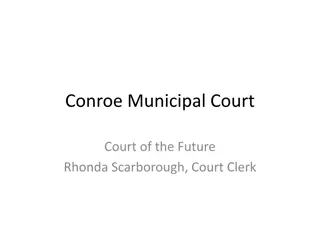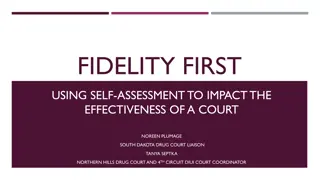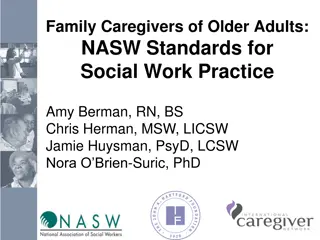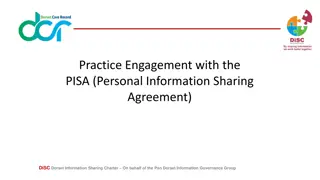Family Treatment Court Best Practice Standards for Communication and Information Sharing
This project, supported by Grant #2020-AR-BX-K001 from the Office of Juvenile Justice and Delinquency Prevention, emphasizes the importance of effective communication and information sharing in Family Treatment Court settings. It outlines provisions for collaboration, community partnerships, and multidisciplinary teams to enhance problem-solving and progress monitoring for cases. Confidentiality requirements are also highlighted, with an emphasis on upholding ethical mandates and reviewing MOUs annually for information sharing compliance.
Download Presentation

Please find below an Image/Link to download the presentation.
The content on the website is provided AS IS for your information and personal use only. It may not be sold, licensed, or shared on other websites without obtaining consent from the author. Download presentation by click this link. If you encounter any issues during the download, it is possible that the publisher has removed the file from their server.
E N D
Presentation Transcript
Family Treatment Court Best Practice Standards 1F: Communication and Information Sharing 1G: Cross-Training and Interdisciplinary Education 1
2020-AR-BX-K001 Funding and Partners Acknowledgement This project is supported by Grant # 2020-AR-BX-K001 awarded by the Office of Juvenile Justice and Delinquency Prevention, Office of Justice Programs, U.S. Department of Justice. The opinions, findings, and conclusions or recommendations expressed in this publication/program/exhibition are those of the author(s) and do not necessarily reflect those of the Department of Justice or our partner organizations. 2
Best Practice 1 Provisions check in Provision A: Collaboration Provision B: Community Partnerships Provision C: Multidisciplinary Team Provision D: Governance Structure Provision E: Shared Mission and Vision Provision F: Communication and Information Sharing Provision G: Cross-Training and Interdisciplinary Education 3
Provision F: Communication and Information Sharing Reporting Reports from Social workers, Treatment & Mental Health Providers, and/or any other Professionals that can give progress information to the FTC Operational Team - Typically given to FTC Coordinator a few days before court hearing is scheduled dependent on policy and MOUs Staffing Report - FTC Coordinator coalesces that information in a clear, efficient way that focused on problem-solving for that case - Reports are given out and read by all team members prior to staffing 4
Confidentiality Confidentiality requirements should be upheld for each member of the team according to the ethical mandates of their profession. MOUs should detail these confidentiality requirements, and MOUs should be reviewed on a yearly basis to be sure information sharing is upheld to the standards required by those professionals Parties to the case are still to be given all information they are legally entitled to, other information is shared based on the details of your courts consent forms. 6
FTC Adjacent Members Local Oversight/Policy and Procedures Team Local Steering Committee or Community Stakeholders Team Local Operational Team County Family Treatment Court 7
Lets Talk About Consent Participant Consent Form Exchange of Confidential Information Disclosure during Pre- Court Staffing Must identify each team member, by name Specify an end date, or a specific event which ends the consent (FTC dismissal or graduation) If a visitor attends court, they must sign a nondisclosure form to protect the confidentiality of the client 8
Family Treatment Court Confidentiality The FTC is considered a treatment program according to Federal Confidentiality laws because Social Workers and Treatment Providers are covered entities Consent Forms and Reporting Process should follow HIPPA (Health Insurance Portability and Accountability Act 42 Code of Federal Regulations (CFR) 9
Provision G: Cross Training and Interdisciplinary Education Research has shown consistently that all members of a team are more effective if they are receiving ongoing training and technical assistance. Operational Team needs ongoing training in: Roles and Responsibilities Best Practice Standards Changes and Updates to Operational Structure of the FTC A comprehensive onboarding process for new members 10
Crossing Training As an interdisciplinary team, all members can benefit from mutually beneficial topics such as: Justice, Diversity, Equity, and Inclusion (JEDI or DEI) topics Adoption and Safe Families Act (ASFA) State child welfare standards - Family Time Law - Plans of Safe Care Indian Child Welfare Act, Tribal Mandates and Laws, Local Tribal Cultural Practices Child Abuse Prention and Treatment Act Substance Use, Trauma, Mental Health Disorders, Effective Treatment Approaches 11
Suggestion Many teams find a brown-bag cross training opportunities developed by members of the team both cost and time effective New Members should review policy and procedures manuals, meet with each team member, and observe a pre-court staffing and review hearing Each team member should consider mentoring a replacement in case of illness and to ensure a smooth transition if they receive a new position 12
Best Practice 1 Provisions check in Provision A: Collaboration Provision B: Community Partnerships Provision C: Multidisciplinary Team Provision D: Governance Structure Provision E: Shared Mission and Vision Provision F: Communication and Information Sharing Provision G: Cross-Training and Interdisciplinary Education 13
